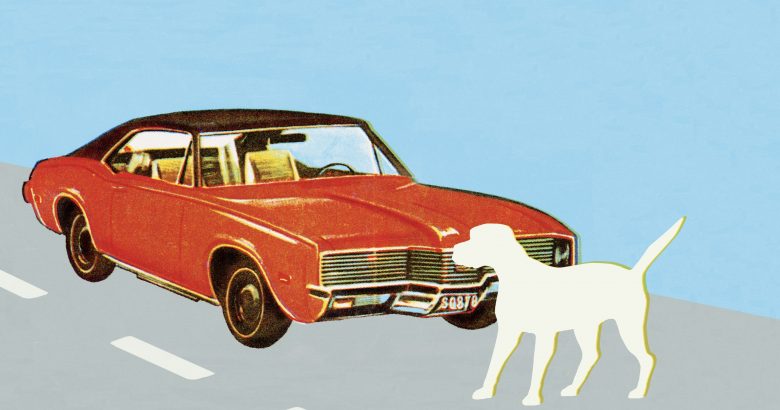
I Hit a Dog with My Car, What Do I Do Now?
It may have happened to you. You are driving along in your car and all the sudden a blurry shape hurtles in front of you. You hear a sickening thump and you jam on the brakes. “Good God, what was that!” you blurt out. As soon as you get out of your car, you see an injured dog laying at the edge of the road. What do you do now?
Moral issues
The moral issues involved with hitting any animal are compassion-based. You have an animal that is injured and probably in a lot of pain. Any individual with a heart would attempt to seek help for the animal and this usually means calling 911 and reporting the accident. In many cases, a police officer will show up but he/she will likely put in a call to the local animal control officer. Animal control officers are trained to take over the situation from that point.
Legal Issues
This one is a little more complicated. There are legal consequences that might apply whenever an animal is injured. This generally doesn’t apply to wild animals but it may to domestic animals. By “domestic,” we mean animals such as dogs, cats, cows, horses, etc. The issue with domestic animals is that the injured animal may be considered the “personal property” of someone and there are laws that apply to damaging one’s personal property. Our local Hyundai dealer, Patrick Hyundai of Schaumburg, IL, says that Illinois is one of those states. If an animal is hurt, “personal property” has been damaged. It’s all a bit confusing but the following checklist will outline the steps you can take to stay out of trouble.
- If you hit a domestic animal, stop and notify authorities
The laws of most states require that if you hit a domestic animal, you must stop and notify the appropriate local police authority. If you don’t do so, you can be charged with leaving the scene of an accident. Secondly, some states have additional statutes that make it illegal to harm an animal and “fail to stop and render aid.”
- Don’t move the animal unless you are absolutely sure it is safe to do so
If the animal is still alive, it is recommended that you wait with it until help arrives before you move it. Remember that a hurt and scared animal may lash out or bite when approached, so use caution and common sense. If you decide it’s necessary to move the animal, try and use a blanket and gloves to avoid being injured.
- Be aware of the legal ramifications of moving the animal
In some states, moving an animal may technically mean “you are taking possession of the animal.” And, there may be laws that dictate that “you are now responsible for its care.” In some states, picking the animal up or moving it to get it out of the street would qualify as taking possession. In other states, if you put the animal in your car, you have legally taken possession of it. And in other states, the concept of taking possession doesn’t apply.
In summary
As noted earlier, call for help if you hit an animal. This is the right thing to do to protect yourself legally and obtain care for a wounded animal.
By the way, don’t fear of being held liable for hitting a domestic animal. Most jurisdictions have ordnances requiring that owners keep their pets under control at all times. If a free running animal hits or is hit by your vehicle, you are not likely to be held liable. In fact, the owner may be held responsible for costs associated with the accident. This may include any medical bills for the animal, and may also include repair of any damage to your vehicle.